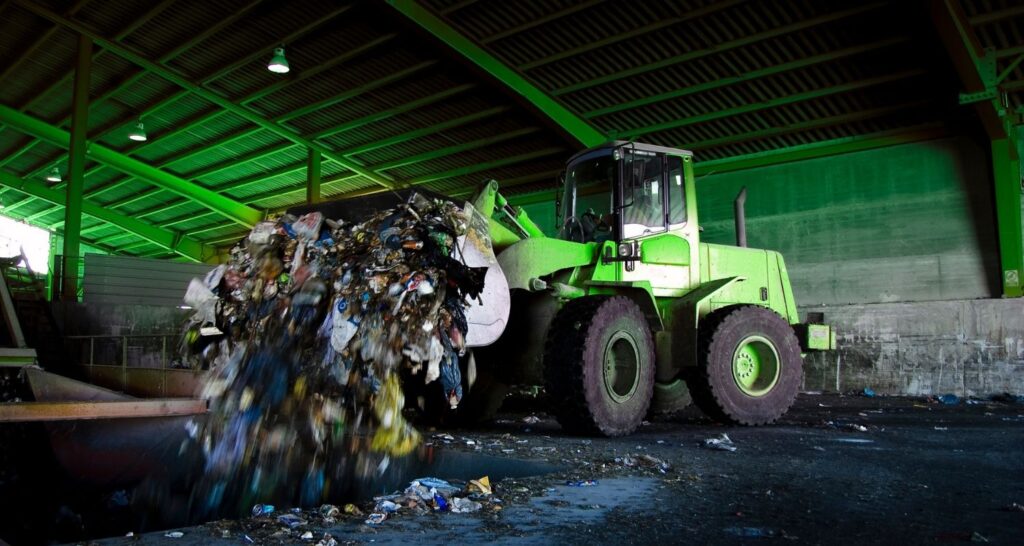What Is Solid Waste Handling?
The term “solid waste handling” refers to collecting and handling solid wastes. Garbage or solid waste has been a problem for as long as humans have lived in communities and residential areas. Waste handling is all about repurposing solid waste as a useful resource. Additionally, it provides methods for recycling materials which don’t fall under the category of rubbish or trash.
Industrialization brought with it a slew of benefits and drawbacks. One of industrialization’s negative consequences is the greater generation of solid waste; it’s handling should be adopted by every family and company owner worldwide.
Types of Waste
- Biodegradable waste: Kitchen waste, food preparation waste, vegetables, flowers, leaves, fruit waste and market garbage.
- Combustibles: Paper, wood, dried leaves, and packing for humanitarian aid are all examples of materials which are highly organic and have low moisture content.
- Non-combustibles: Metal, tins, cans, bottles and stones, among other materials
- Hazardous waste: Antiquated medications, paints, chemicals, bulbs, spray cans, containers for fertilizer and pesticides, batteries and shoe polish.
- Recyclables: Paper, glass, metals and plastics are all recyclable.
- Dust or ashes: Residue from cooking flames.
- Construction waste: Rubble, roofing and shattered concrete, to name a few.
- Contaminated waste: Oil, battery acid, medical waste, industrial garbage and hospital waste are all examples of contaminated waste.
- Dead animals: Carcasses of cattle or other animals who have died.
- Unwieldy waste: Tree branches, tires and so on.
Hospital waste: Dirty fabric from the presence of blood and other bodily fluids.
Solid Waste Comes From a Variety of Sources
 Domestic
Domestic
Residential areas are significant contributors to solid waste. Food wastes, plastics, paper, glass, leather, cardboard, metals, yard wastes and ashes, along with special wastes such as large home objects like electronics, tires, batteries, old mattresses and used oil are all included in the rubbish from these locations.
- Industrial
Industries are recognized as a significant source of solid waste. These industries include light and heavy manufacturing, building, fabrication, canning, and power and chemical facilities. These industries generate solid trash in the form of household garbage, food waste, packaging waste, ash, building and demolition materials, special waste, medical waste and other hazardous waste.
- Business-Related
Commercial establishments and structures are other sources of solid waste. In this context, commercial structures and facilities pertain to hotels, marketplaces, restaurants, warehouses, retail establishments and office buildings. Plastics, food wastes, metals, paper, glass, wood, cardboard materials, special wastes and other hazardous wastes are only a few of the solid wastes created in these locations.
- Organizational
Institutional facilities such as schools, universities, jails, military barracks and other government facilities generate solid waste. Among the frequent solid wastes collected from these locations are glass, rubber waste, plastics, food wastes, wood, paper, metals, cardboard materials and electronics, in addition to a variety of hazardous wastes.
- Areas for Construction and Demolition
Additionally, construction and demolition sites add to the issue of solid waste. Construction sites include those for new buildings and roads, plus those for road repair, building refurbishment and destruction. Steel, concrete, wood, plastics, rubber, copper cables, dirt and glass are just a few of the solid wastes generated at these locations.
- Municipal Services
Additionally, metropolitan areas contribute significantly to the solid waste dilemma in most nations today. Municipal services generate solid trash in various ways including street cleaning, waste from parks and beaches, waste from wastewater treatment facilities, landscaping waste and garbage from recreational areas including sludge.
- Treatment Plants and Locations
Additionally, both heavy and light industrial units generate solid waste. Refineries, power plants, processing facilities, mineral extraction plants and chemical plants are a few examples. These factories generate a variety of trash including industrial process wastes, undesirable specification goods, polymers and metal components, to name a few.
- Agriculture
Solid wastes are also generated on crop farms, orchards, dairies, vineyards and feedlots. Agricultural wastes, damaged food, pesticide containers and other dangerous products are among the trash they generate.
- Biological and Medical
This category includes hospitals, biomedical equipment manufacturers and chemical manufacturers. Hospitals generate a variety of solid wastes. Syringes, bandages, old gloves, pharmaceuticals, paper, plastics, food wastes and chemicals are just a few of these solid wastes. These items must be properly disposed of or they will create a significant issue for the environment and the individuals who work at these facilities.
Benefits of Solid Waste Handling
- Benefits to the Environment
- Eliminates waste
- Minimizes garbage transported to landfills to avoid the detrimental effect on groundwater and air quality
- Conserves energy, which minimizes oil and gas usage and air pollution
- Benefits to Safety
- Improved services and better oversight of solid waste management techniques result in a reduction in lifting, handling and other potentially hazardous activities.
- Benefits to the Economy
- Increased efficiency results in cost savings and time savings for workers
- Reduced waste results in lower collection and disposal expenses
- Improved services equate to more value at the same cost
- An integrated solid waste strategy assists you in obtaining funds to undertake solid waste management and diversion initiatives (and possible funding and cooperation from other solid waste management system partners)
- Benefits to Participation
- Demonstrates to tourists and decision-makers your commitment to environmental stewardship
- Invites visitors to take an active role in environmental preservation both at parks and their homes
More information on solid waste handling can be found at Reaction Distributing online or by calling us at (866) 244-0009.



